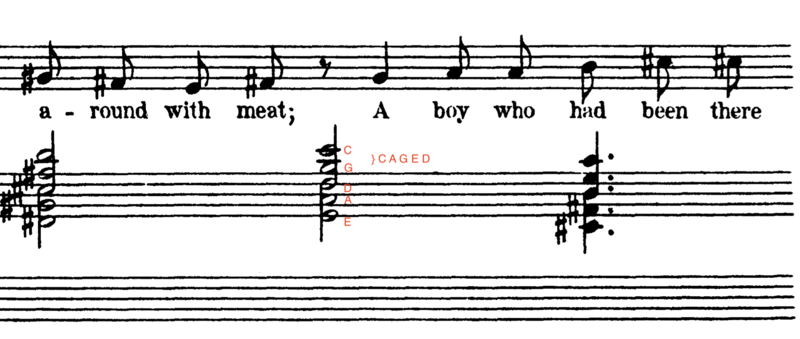I was a guest on the most recent episode of the Song Sandwich podcast, hosted by Clover Nahabedian (of Dollhouse Lightning, a fantastic indie label which put out my band So Said So’s album Evil Wants You) and Mark Dennis, my old friend and bandmate from Wizard Party among other projects.
It’s a long episode, and we goof around a bit and there are a few distractions and digressions. But we also talk about four songs which I chose for everybody to listen to and discuss, and it was fun to have a free-form conversation centred around a few chosen songs with a couple of fun and knowledgable music nerds.
I didn’t have a major theme linking each of these songs, but I did have in mind ways in which each song or performance helps me learn something about what songs are and what they can do. These are the songs I chose for us to listen to and talk about (click on each title to listen on YouTube):
Thermal Treasure, by Polvo
The Polvo song has taught me so much about how to approach the guitar. Particularly, Ash Bowie’s use of droning open strings during the verses. This being a song I’ve loved since I was 16, it is reasonable to say that this song was a major influence on how I used to write rock songs with my earliest bands. That influence continues to this day, though it’s been joined by so many others.
Fionnghuala, by The Bothy Band
“Fionnghuala,” as a work song sung by Scottish sailors and fishing crews, is a fine example of what I’ve been referring to as “music that does something.” In this case, music that literally supports work. There is also something to be learned here about ways to work with language in song through the repetition and alliteration of the song’s lyrics.
The Cage, by Charles Ives
Charles Ives has long been an important composer for me, and “The Cage” is a perfect micro-sized distillation of some of what I have to learn from Ives. The complete integration of text and musical form, down to spelling the word “Caged” in the piano part, is not just amusing but shows how attentive he was to all aspects of his compositional practice.

Figure 1: Ives spells the word “Caged” in the piano chord here.
Blackwaterside, trad., performed by Anne Briggs and Bert Jansch
“Blackwaterside” is a beautiful song, and while I love Jansch’s and Briggs’ respective recordings, this is my favourite performance. I love how well they play together, and I love how each of them has at least one moment of making a slight “mistake”, such as almost coming in too early or botching a lick, and yet none of it matters because the performance itself, and the care of the performers, is so beautiful and compelling. It helps me articulate the distinction between what we might call on the one hand “technical” or “literal” competency and, on the other hand, “performant” competency. Briggs and Jansch are both technically competent and are very good at playing and singing. But what I would argue to be more important is “performant competency”, which is the capacity for realizing a work in real-time in a compelling and moving way. I suppose Roland Barthes’ notion of the “grain” of the voice, i.e., the “hand as it writes”, “the body as it sings”, and so on, would be relevant here. (A topic for another piece of writing.)